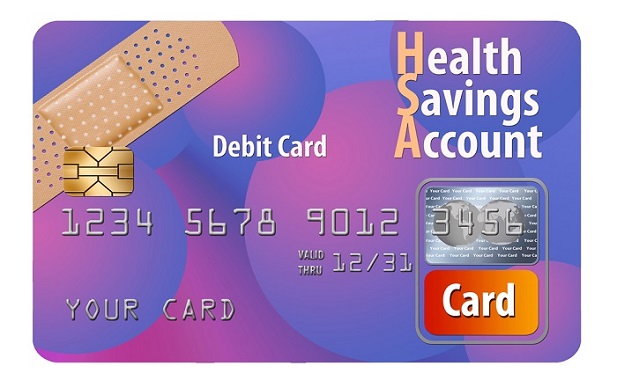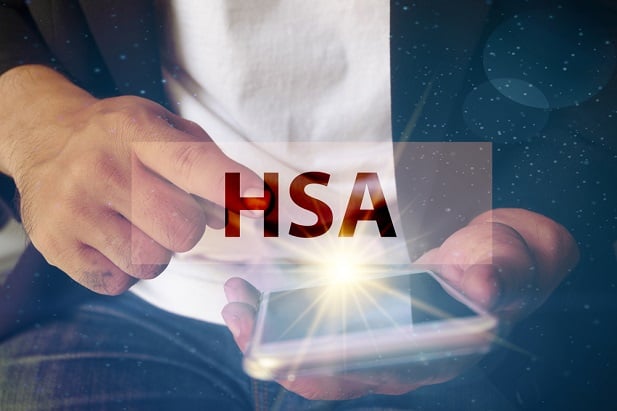 While health insurancepremiums aren't generally treated as qualified medical expenses forHSAs, account holders can use their HSA to pay for COBRA premiums.(Photo: Shutterstock)
While health insurancepremiums aren't generally treated as qualified medical expenses forHSAs, account holders can use their HSA to pay for COBRA premiums.(Photo: Shutterstock)
According to a survey by the National Association of PlanAdvisers, 60% of plan sponsors say education about health savingsaccounts (HSAs) is a pressing need. In fact, 50% of Americans saythey are not knowledgeable about HSAs, and 40% believe HSA fundsare lost if not spent by end of year. The primary reason cited forso much confusion is lack of education. Employees struggle tounderstand what an HSA is and how it can help them save moneytax-free for medical expenses now and in retirement.
|Distinct advantages
When HSAs first came into existence, they were lumped into abenefits package along with Flexible Spending Accounts (FSAs) andHealth Reimbursement Accounts (HRAs). This was a critical earlymistake that has led to persistent misunderstandings. HSAs, unlikeFSAs and HRAs, are actual bank accounts where real dollars aredeposited. They are not "notional" accounts where the employee mustincur an eligible expense before funds are paid out. Likewise, HSAsare not subject to ERISA requirements.
|Related: How HSA and FSA use has changed amid the COVID-19pandemic
|This is an important distinction. Because with an HSA, theemployee is in possession of their money, and they can control howthat money is used. They can make their own contributions to saveon taxes. They can invest in mutual funds to build a nest egg forretirement. They can use the money tax-free at any time forqualified expenses. Or, they can watch their balances build overtime and reimburse themselves when they retire for all the expensesthey paid for out of pocket from the day the HSA was opened. TheHSA stays with them for life.
|Ways to use an HSA during COVID-19
As the COVID-19 global pandemic moves into its next phase, thefinancial implications of the crisis are becoming more apparent andmore pressing. Unemployment numbers are skyrocketing, and theeconomy has contracted considerably. While there are some positivesignals from the stock market and other indicators, your employeesmay be experiencing immediate challenges. Here are some ways youremployees can use an HSA to address immediate concerns.
|Because there are no tax penalties for using HSA funds to coverqualified expenses, a quick refresher for employees may help. Makesure your employees know that HSA funds can be used for mosttherapeutic care, including doctor bills, prescriptions, hospitalvisits, lab tests, eyeglasses and dental care. More specificallyfor the current crisis, employees can use HSAs for emergencypreparedness supplies such as thermometers, first aid items,batteries for medical devices, and transportation to receive anyneeded treatments.
|In addition, the Coronavirus Aid, Relief, and Economic Security(CARES) Act provides several new HSA expansions. Feminine hygieneproducts can now be purchased tax-free with HSA funds, and the samegoes for many over-the-counter medications – no prescriptionneeded! HSA funds can also be used to pay for qualified medicalexpenses for a spouse and tax dependents – again tax-free –regardless of their insurance coverage. In addition, new rules forhigh deductible health plans have been implemented to allowinsurance providers to voluntarily cover telehealth services andCOVID-19 treatment before the deductible has been met. Many majorinsurance providers have stepped up to offer this additionalcoverage. Finally, HSA-qualified health plans are required to coverCOVID-19 testing, regardless of deductible.
|Covering the COVID-19 cash crunch
For those experiencing an immediate, significant cash crunch,HSA account holders can also reimburse themselves tax-free for pastqualified medical expenses to keep more cash on hand. That meansthat they can pay themselves from their HSA funds for qualifiedexpenses that have been incurred since the account was openedwithout incurring any tax penalties or fees.
|While health insurance premiums aren't generally treated asqualified medical expenses for HSAs, account holders can use theirHSA to pay for COBRA premiums and health care coverage whilereceiving unemployment compensation under federal or state law.This offers critical financial support for furloughed employees andthose now facing unemployment.
|And, as long as an employee retains HSA-qualified healthcoverage after leaving their employer, they can continue tocontribute to their HSA, even if they simply want to use theaccount for tax-free pass-through spending. It's important to notethat the IRS tax filing deadline for 2019 taxes was moved to July15th, so HSA account holders have until July 15th to make 2019contributions to their HSAs.
|Now is a good time for employers to make sure that employees ona qualified health plan have opened an HSA and are properlyleveraging it. Employees need to be made aware of the multitude ofways they can use the HSA to help manage health and financialchallenges now during the current pandemic, as well as in thefuture.
|E. Craig Keohan isCRO at HealthSavings.
Read more:
Complete your profile to continue reading and get FREE access to BenefitsPRO, part of your ALM digital membership.
Your access to unlimited BenefitsPRO content isn’t changing.
Once you are an ALM digital member, you’ll receive:
- Critical BenefitsPRO information including cutting edge post-reform success strategies, access to educational webcasts and videos, resources from industry leaders, and informative Newsletters.
- Exclusive discounts on ALM, BenefitsPRO magazine and BenefitsPRO.com events
- Access to other award-winning ALM websites including ThinkAdvisor.com and Law.com
Already have an account? Sign In
© 2024 ALM Global, LLC, All Rights Reserved. Request academic re-use from www.copyright.com. All other uses, submit a request to [email protected]. For more information visit Asset & Logo Licensing.








